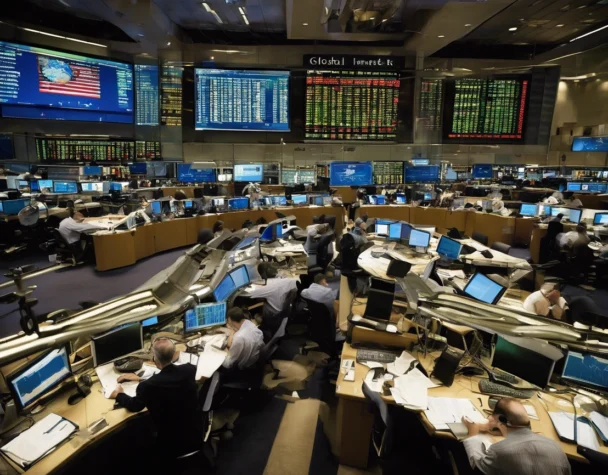
Global Markets Navigate Economic Landscape Amid Uncertainty
Mon, March 24, 2025As global markets continue to grapple with uncertainty, economic and political factors are shaping investment strategies worldwide. U.S. and international markets are experiencing significant volatility, driven by tariff speculations, shifting investment patterns, and evolving economic sentiments.
U.S. Markets See Renewed Optimism Despite Recession Fears
U.S. stock futures rose on Sunday, with major indices like the S&P 500, Dow Jones, and Nasdaq-100 gaining 0.5%, 0.6%, and 0.8%, respectively. This uptick comes after a positive week, during which the S&P 500 broke a four-week losing streak. Investors are cautiously optimistic as they await President Trump’s announcement on reciprocal tariffs. Instead of targeting entire industries, these tariffs are expected to focus on specific countries, potentially reducing broader market impacts.
However, concerns over inflation and consumer confidence persist. Economic sentiment remains divided, with fears of a recession looming despite official reassurances. Analysts warn that dismissing these negative sentiments could lead to reduced consumer spending and a slowdown in economic growth. Investors are increasingly seeking international opportunities, diversifying their portfolios to hedge against domestic economic risks.
A significant trend has emerged as investors move away from U.S. assets in favor of international markets, particularly European defense stocks. With increased military spending across Europe, these stocks have become highly attractive. The shift also reflects growing concerns over U.S. inflation and waning consumer confidence. (For more insights on the impact of tariffs on global markets, visit MarketWatch).
International Markets: Europe and China Gain Traction
While the U.S. faces domestic challenges, international markets are attracting renewed interest. European markets, such as Germany’s DAX index, have seen significant gains of nearly 15% this year. These gains are largely attributed to expectations of relaxed debt rules and heightened defense budgets. On the other hand, the U.S. dollar’s weakening position is prompting some investors to reevaluate its status as a safe-haven currency.
A notable shift is also occurring in Asia, where investors are increasingly pulling out of India and redirecting capital towards China. India’s high inflation and rising interest rates have caused a 13% drop in its stock market since September, wiping out $1 trillion in market value. Meanwhile, China’s Hang Seng Index surged 36% as investors were drawn to promises of stimulus measures and economic recovery. (For more on the impact of inflation in emerging markets, see Reuters).
Investors worldwide are carefully balancing risk and opportunity, reassessing their strategies as economic landscapes continue to evolve. While the U.S. seeks to mitigate the effects of new tariffs, international markets are positioned to capitalize on shifts in global capital flows and changing economic policies.

